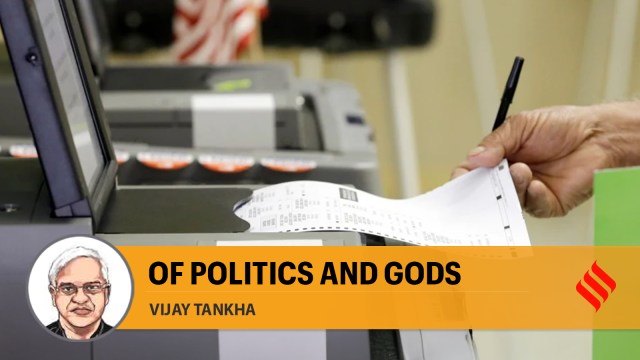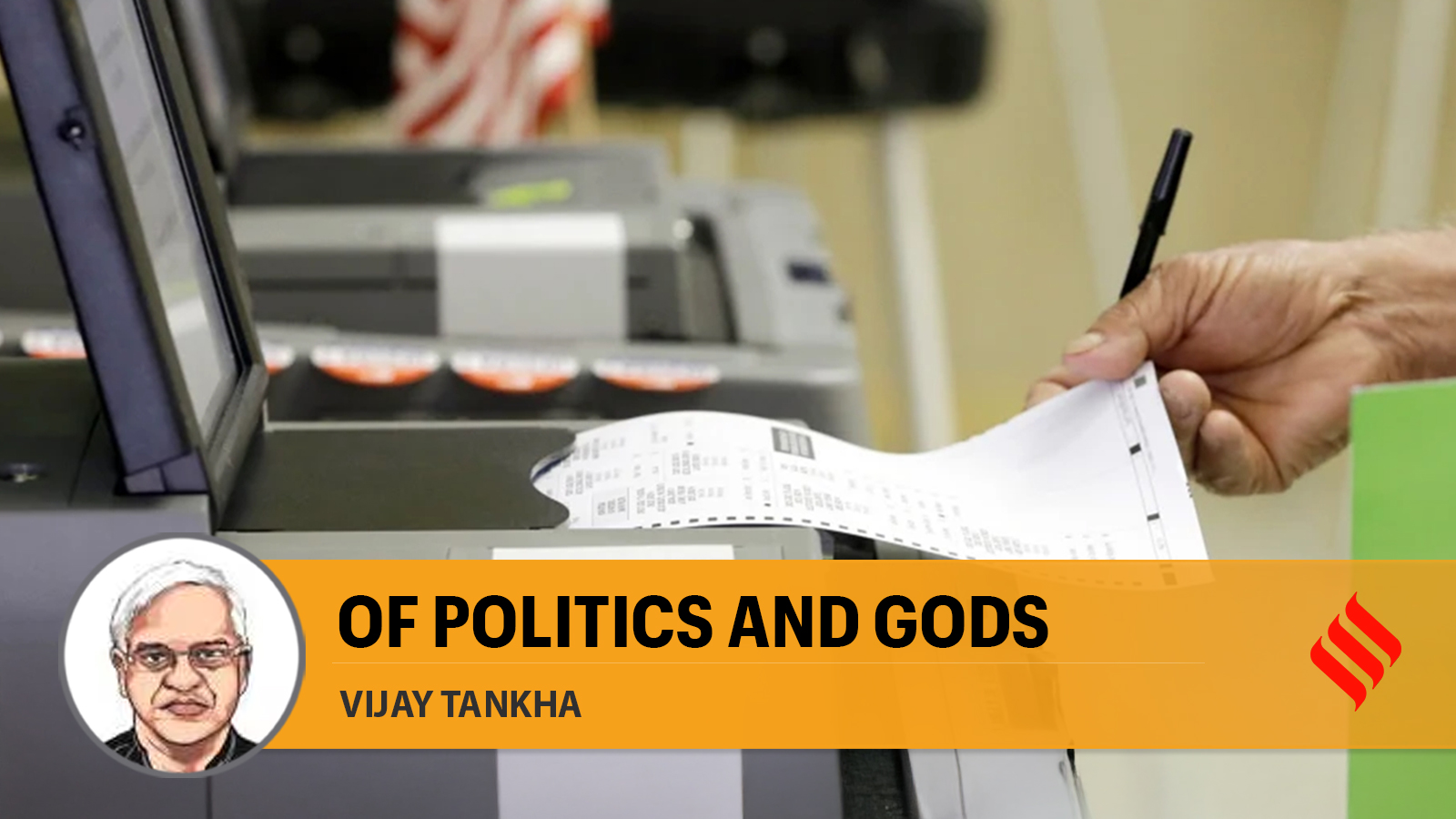
The US elections are around the corner. Though it is the oldest modern democracy, each dollar bill piously proclaims “in God we trust”. A secular polity like ours, while it places its trust in the RBI, is noteworthy for the religious tilt each party makes, careful not to offend the sentiments of the gods or their many devotees. In ancient Greece as well, the birthplace of democracy, with its numerous cults and gods, religion was a powerful force.
Public events — the Panathenaea (dedicated to Athena), the Olympic Games (to Zeus), and the Theatre (of Dionysus) — were held in their presence. Before every battle, animals were sacrificed for favourable omens. Hellenic gods and heroes were regularly “seen” actively fighting against barbarian invaders. The mountain above the sanctuary of Delphi had hurled rocks at advancing Persians.
Though gods were involved in almost every drama, the Greek tragedians nevertheless flagged their role in the politics of the city. These dramatists, part of the intellectual elite of their times, displayed (and questioned) many of the opinions and beliefs of the audience. Politics and religion were the leitmotif of many tragedies. They showed prophets and priests as important in the affairs of the city, and able to overturn political fortunes. Oedipus, for instance, suspected that Creon and the prophet Tiresias were conspiring to dethrone him. Though the fear proved baseless in that play, it was a reasonable assumption to make.
In two well-known instances, the state was pitted directly against religious beliefs. In Antigone (a favourite with feminists), the King (Creon) refuses burial rites to the traitor Polynices (Antigone’s brother). Religious obligation drove her to disobey him; state policy compelled him to condemn her. Female emotion confronted male rationality (the king and city). Both lost (his son anticipating her death, commits suicide; his mother stabs herself cursing her husband). The play ends with the chorus saying “the blows of fate will teach us wisdom… the gods must be reverenced”. Religious custom (represented by the burial) could outweigh the law.
The god Apollo drove Oedipus to his (fated) doom. His storyline begins with a killing (prompted by a goddess) that leads his family to extinction. In Aeschylus’s Oresteia, Apollo orders Orestes to kill his mother, yet the god of ritual and prophecy cannot purify him of the consequent blood guilt. The infernal female deities that pursue Orestes are finally tamed by a judicial process and harnessed as a fearful force that will keep citizens in check.
In The Bacchae, Euripides’ last work, the king, again representing civic reason, attempts to suppress Dionysus’ new cult (the god’s Indian connection is noted by scholars). His followers are also women: Day confronts night, and the king is decapitated by his own mother who, deranged by the god, thinks him a lion they have torn apart. She enters the city brandishing her son’s head. The brutal conflict ends with the god shrugging off responsibility. He exiles the wretched Agave and her father, who complains: “Your reprisals are too severe.” Dionysis responds: “I am a god, and you have insulted me.” The chorus ends with the homily, “many are the shapes of things divine.”
Throughout Greek tragedy, the gods make heinous demands. The fleet cannot sail for Troy until a human sacrifice (a virgin no less) placates Artemis, inexplicably upset. In Hippolytus, Aphrodite, wagering she can corrupt Artemis’ virgin devotee, implants in Phaedra, his stepmother, an unholy lust for him. The youth is appalled by her advances. Fearing exposure, Phaedra kills herself but implicates him. His father has him killed. Artemis wins the bet but, being a goddess, can’t shed tears for him. Instead, she vows to get one of Aphrodite’s devotees someday. “We are playthings of the gods”, says the poet.
One reason for the negative depiction of Apollo may be because his cult was rooted at Delphi, an oracle politically aligned with Sparta, the bete noir of Athens (surviving dramatic texts are all Athenian). Oracles could be nasty, dispensing ambiguous prophecies often misinterpreted by those who consulted them. Delphi was also open to bribery (the Athenians once bribed the Priestess to convince the Spartans to overthrow the aristocrats who ruled Athens).
Politics even then fed on religious sentiments. The entire aristocratic clan of the Alcmaeonids was exiled, not for the murder their ancestors committed, but for a violation of religious sanctuary. Socrates was accused, condemned and executed on the charge of worshipping false gods. The tragedians were well aware of the power of religious sentiment. While their plays are read as aiming to incorporate rather than resist the irrational power of the gods, they were wary of the political role religion could play. Religious conflict could overturn, as Luther did, the established order. It should come as no surprise that long-lasting empires (Roman, Persian, Ottoman) were mostly tolerant of different religions, as long as, paying taxes, their citizens “gave to Caesar what was Caesar’s.”
The writer taught Philosophy at St Stephen’s College, Delhi



